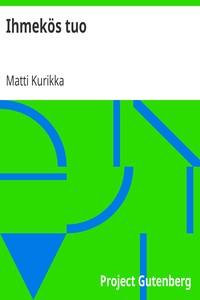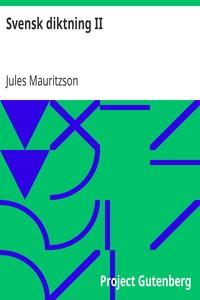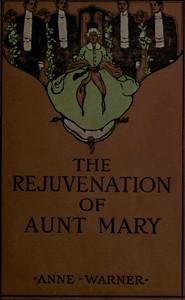|
|
Read this ebook for free! No credit card needed, absolutely nothing to pay.Words: 35536 in 10 pages
This is an ebook sharing website. You can read the uploaded ebooks for free here. No credit cards needed, nothing to pay. If you want to own a digital copy of the ebook, or want to read offline with your favorite ebook-reader, then you can choose to buy and download the ebook.

: English Dialects From the Eighth Century to the Present Day by Skeat Walter W Walter William - English language Dialects@FreeBooksTue 06 Jun, 2023 BIBLIOGRAPHY INDEX DIALECTS AND THEIR VALUE The modern meaning is somewhat more precise. In relation to a language such as English, it is used in a special sense to signify "a local variety of speech differing from the standard or literary language." When we talk of "speakers of dialect," we imply that they employ a provincial method of speech to which the man who has been educated to use the language of books is unaccustomed. Such a man finds that the dialect-speaker frequently uses words or modes of expression which he does not understand or which are at any rate strange to him; and he is sure to notice that such words as seem to be familiar to him are, for the most part, strangely pronounced. Such differences are especially noticeable in the use of vowels and diphthongs, and in the mode of intonation. The speaker of the "standard" language is frequently tempted to consider himself as the dialect-speaker's superior, unless he has already acquired some elementary knowledge of the value of the science of language or has sufficient common sense to be desirous of learning to understand that which for the moment lies beyond him. I remember once hearing the remark made--"What is the good of dialects? Why not sweep them all away, and have done with them?" But the very form of the question betrays ignorance of the facts; for it is no more possible to do away with them than it is possible to suppress the waves of the sea. English, like every other literary language, has always had its dialects and will long continue to possess them in secluded districts, though they are at the present time losing much of that archaic character which gives them their chief value. The spread of education may profoundly modify them, but the spoken language of the people will ever continue to devise new variations and to initiate developments of its own. Even the "standard" language is continually losing old words and admitting new ones, as was noted long ago by Horace; and our so-called "standard" pronunciation is ever imperceptibly but surely changing, and never continues in one stay. Green-bellied snakes, blue fire-drakes in the sky, And giddy flitter-mice with leather wings. There is, in fact, no limit to the good use to which a reverent study of our dialects may be put by a diligent student. They abound with pearls which are worthy of a better fate than to be trampled under foot. I will content myself with giving one last example that is really too curious to be passed over in silence. DIALECTS IN EARLY TIMES The investigation of the differences of dialect in our early documents only dates from 1885, owing to the previous impossibility of obtaining access to these oldest texts. Before that date, it so happened that nearly all the manuscripts that had been printed or examined were in one and the same dialect, viz. the Southern . The language employed in these was named "Anglo-Saxon"; and the very natural mistake was made of supposing that this "Anglo-Saxon" was the sole language which served for all the "Angles" and "Saxons" to be found in the "land of the Angles" or England. This is the reason why it is desirable to give the more general name of "Old English" to the oldest forms of our language, because this term can be employed collectively, so as to include Northumbrian, Mercian, "Anglo-Saxon" and Kentish under one designation. The name "Anglo-Saxon" was certainly rather inappropriate, as the speakers of it were mostly Saxons and not Angles at all; which leads up to the paradox that they did not speak "English"; for that, in the extreme literal sense, was the language of the Angles only! But now that the true relationship of the old dialects is known, it is not uncommon for scholars to speak of the Wessex dialect as "Saxon," and of the Northumbrian and Mercian dialects as "Anglian"; for the latter are found to have some features in common that differ sharply from those found in "Saxon." But specimens of the oldest forms of the Northern and Midland dialects are, on the other hand, very much fewer in number than students of our language desire, and are consequently deserving of special mention. They are duly enumerated in the chapters below, which discuss these dialects separately. Having thus sketched out the broad divisions into which our dialects may be distributed, I shall proceed to enter upon a particular discussion of each group, beginning with the Northern or Northumbrian. THE DIALECTS OF NORTHUMBRIA; TILL A.D. 1000 Free books android app tbrJar TBR JAR Read Free books online gutenberg More posts by @FreeBooks
: Ihmekös tuo Huvinäytelmä 1:ssä näytöksessä by Kurikka Matti - Finnish drama@FreeBooksTue 06 Jun, 2023

: Svensk diktning II Selections from Swedish Poets with Brief Monographies by Olson Ernst W Ernst Wilhelm Contributor Mauritzson Jules Editor - Swedish poetry; Poets Swedish@FreeBooksTue 06 Jun, 2023
|
Terms of Use Stock Market News! © gutenberg.org.in2025 All Rights reserved.






